
GIVE THIS RAMADAN
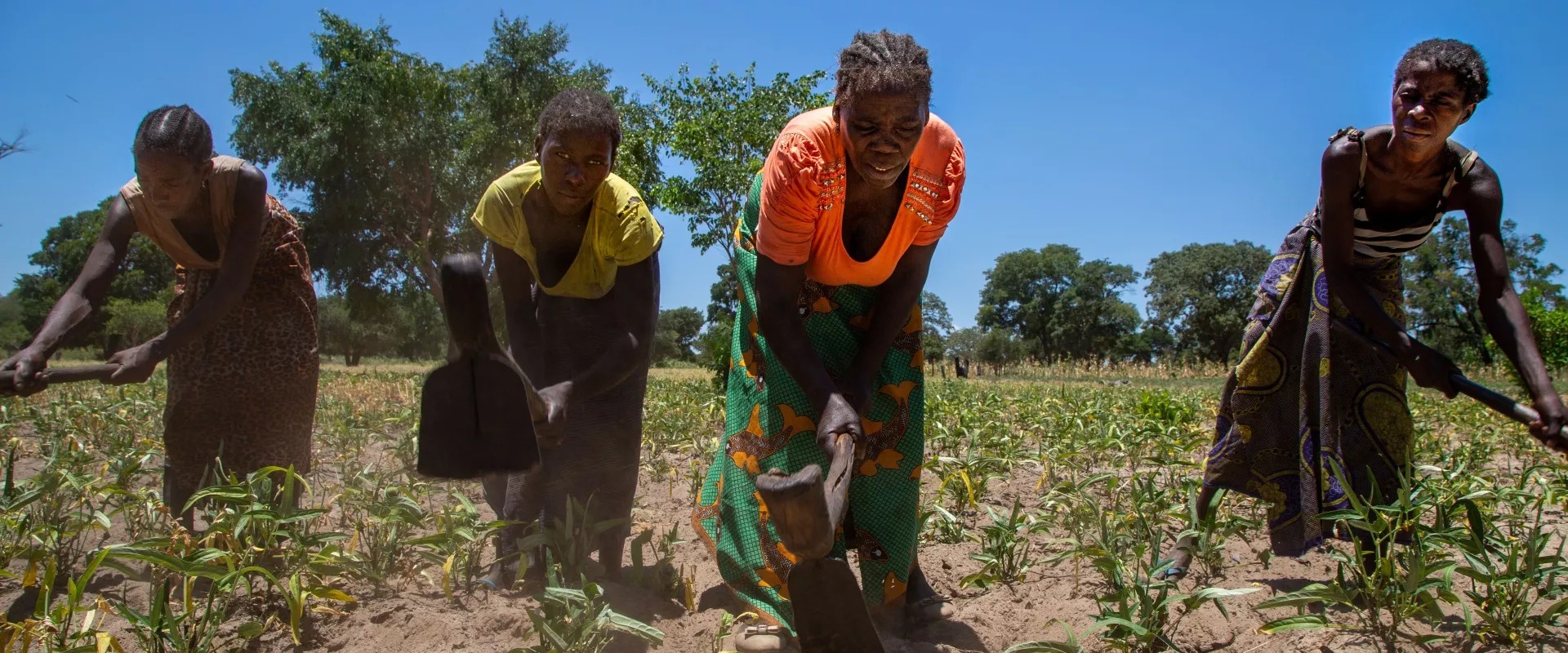
As dawn breaks over Zambia’s Western Province, 64-year-old Dorothy Makina wakes to a long day of farming. In the dry heat, she emerges from her thatched-roof home and gazes towards the sky. Like almost every other day this year, there are no clouds — and little hope for rain amidst a deadly drought.
Mrs. Makina is the eldest matriarch of the family, and she’s a force of nature herself. Over the years, her wisdom and fortitude has carried her through trying times. This year is no different — Zambia is experiencing the driest agriculture season in over 40 years. Over 43% of all corn planted has been destroyed. Many people, like Mrs. Makina, are facing an uncertain future.
“Things have really changed since climate change crept in,” said Mrs. Makina. “We are now facing serious problems, we are really suffering.”
Mrs. Makina’s day starts her day with morning news. She perches a radio on her shoulder, moving through her fields with purposeful strides, and tunes into local stations. These broadcasts help her stay informed and connected with the world beyond her farm. Over the years, Mrs. Makina has created a very successful agriculture business. Now, she’s facing a new kind of threat.
As global temperatures rise, farmers like Mrs. Makina are left without a clear path forward. Recent years have been especially taxing, and Mrs. Makina has faced more and more challenges while growing and selling her crops. Last fall, she took matters into her own hands and enrolled in Action Against Hunger’s new climate-resilient agriculture initiative, where farmers grow drought-resistant black-eyed peas.
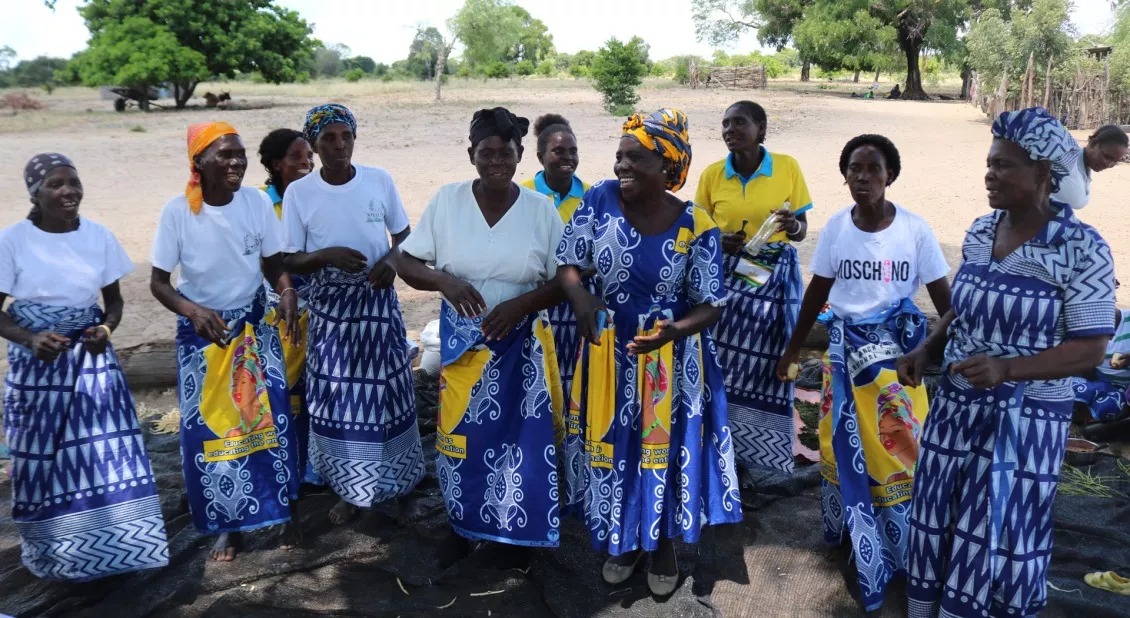
Mrs. Makina has overseen her farm for nearly 50 years. She’s done it alone for nearly 15 years. In 2010, Mrs. Makina’s husband passed away, and the widow must now provide for her eight children, 24 grandchildren, and 4 great-grandchildren, most of whom live with her.
She also inspires other women in her community, also known as Kaande Camp. It’s a completely women-run and women-led community. Kaande Camp is comprised of widows or women who live alone. They rely on each other for support and unite in the face of climate change.
“In the 1980’s we were farming corn, but since that stopped growing well I turned to growing cassava. Yet more recently, that crop has been failing too,” she said.
Mrs. Makina fears for her family’s well-being. “For those of us who live in villages and are not educated, our offices are here in the sun, growing and selling our produce,” she said. “The change in the weather patterns has caused our farmers to have poor yields, and this has affected the diets and eating habits of people, both children and adults, who are not getting proper meals.”
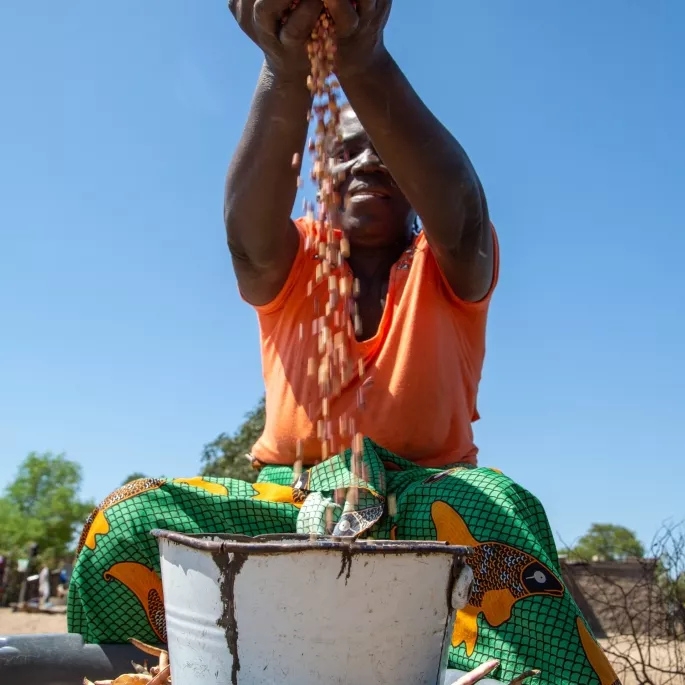
More than half of Zambia’s population lives in poverty, and their malnutrition rates are among the highest in the world. Action Against Hunger tackles hunger in Zambia through climate-resilient agriculture programs.
Over the last few decades, Zambia’s rainfall patterns have been erratic. Oftentimes, flash floods have been followed by prolonged dry spells. Small-scale farmers used to rely on the environment’s predictability, and they would plant, grow, and harvest enough crops to consume and sell, providing them with enough food to see them through the dry season. Now, they are at the mercy of inconsistent weather patterns.
Climate shocks lead to lower crop yields, affecting staples such as corn, sorghum, and millet. As a result, farmers like Mrs. Makina face livestock loss, food shortages, and increased prices. Rural communities are particularly affected and overtaken with malnutrition.
In February, Zambia’s president declared the drought a national emergency, calling for international support to prevent a catastrophic hunger crisis.
“People will start collapsing of hunger,” said Mrs. Makina.
Fearing for her family’s survival, Mrs. Makina began working with Action Against Hunger to plant the black-eyed peas. Known as “cowpeas” in Zambia, these legumes are able to withstand arid and hot conditions. Black-eyed peas are known for their resilience, particularly during drought, and their ability to thrive with little water.
“It’s really important to us that this response is sustainable. Next year, if we see more droughts, we don’t want to be in the same situation,” said Mary Khozi, Country Director of Action Against Hunger Zambia. “The introduction of this ten-year program is timely. It aims to confront climate-induced hunger, reduce poverty and support communities in adapt to climate change and becoming resilient to it.”
Many rural families in Zambia struggle with cooking nutrient-dense meals, let alone finding enough food at all. Black-eyed peas, however, are packed with essential nutrients and protein. They can be key to ensuring a healthy diet. Mrs. Makina is one of more than 1,280 farmers to participate in Action Against Hunger’s program.
“Together we chose black-eyed peas because we realized that black-eyed peas adjust easily to climate change. Despite the change in the weather patterns, we found that they still thrive,” she said. “We are hopeful that it will really help improve the livelihood of us farmers.”
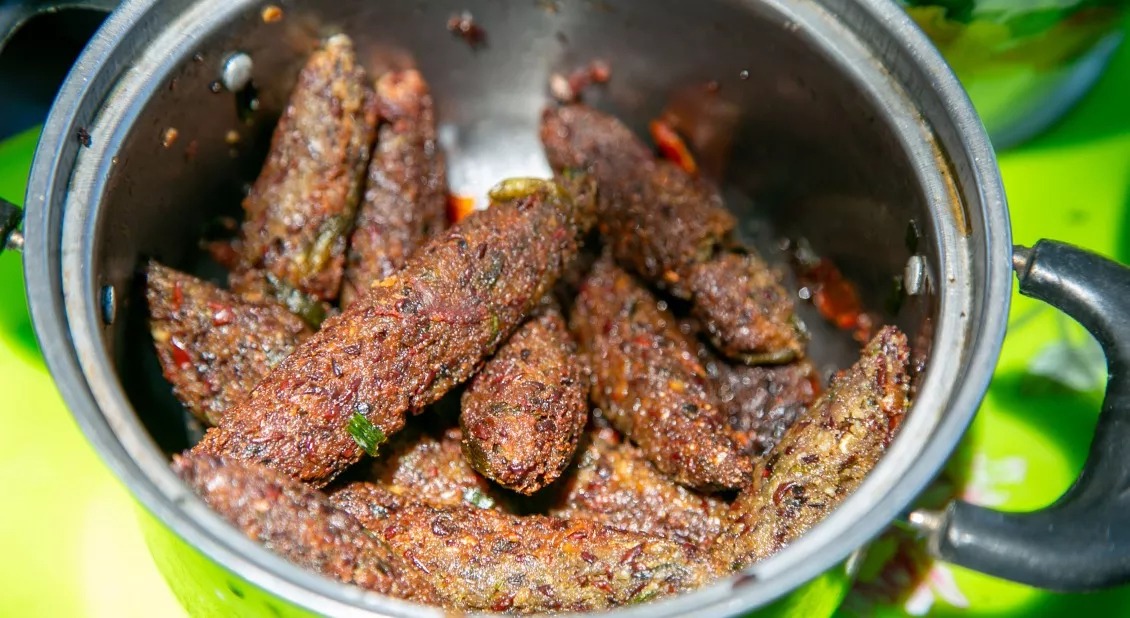
Unlike many other farmers in the program, Mrs. Makina has grown black-eyed peas before. Nevertheless, this is the first time she’s been trained in how to plant and sell them. With the help of Action Against Hunger, she will harvest the crop and take it to a local market.
“I went to a workshop and even received leaflets about black-eyed peas,” she said. “There is a noticeable difference between the way we used to plant and how we are doing things now under the Action Against Hunger program.”
“Even though the country is experiencing extreme crop failure, our program has been successful,” said Khozi. “The farmers have significant yields and have proven that even with less rain, they were still able to harvest. I think this is powerful.”
Mrs. Makina hopes that she can sell enough black-eyed peas to last through the long summer. “All the corn we planted has died, all the groundnuts we planted have died, as well as the other kinds of beans,” she said. “But the black-eyed peas still have some life in them.”
Still, Mrs. Makina prays for rainfall. Even with the black-eyed peas, she and her children barely have enough to survive the drought. Like many other farmers across Zambia, she faces unpredictable times. And as the climate crisis only intensifies, there is no end in sight.
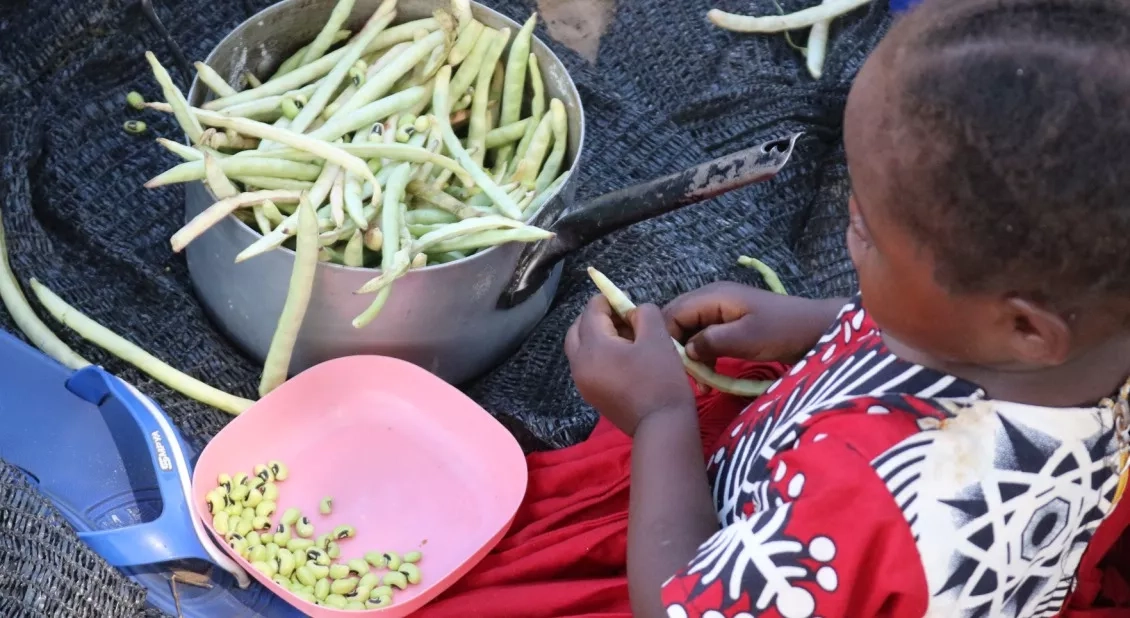
Action Against Hunger’s climate resiliency program in Zambia is designed to mitigate and prepare for the impact of climate change over the next ten years. In the Western Province, Action Against Hunger is building a climate-smart network that will help farmers grow drought-resistant crops like cowpeas.
Our teams work alongside community members to strengthen irrigation systems; facilitate the planting and harvesting of crops; and build awareness around resource management, food preservation, water storage, and more. Staff will also work to strengthen the local economy and connect farmers to broader financial networks.
Join our community of supporters passionate about ending world hunger.